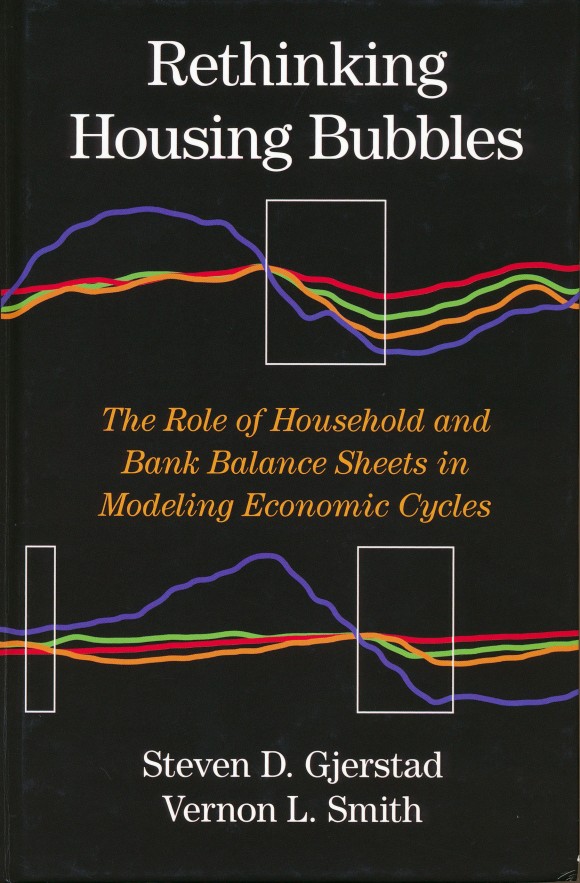Chapman Nobel Laureate Vernon Smith to Give Public Talk
September 10, 2014

Chapman University’s Nobel Laureate Vernon Smith (Economics 2002) will participate in a public talk hosted by the Directors Roundtable and
Chapman’s Economic Science Institute
later this month. Professor Smith is the keynote speaker at this free talk at the event called “A Dialogue with Nobel Laureate Vernon Smith: The Impact of both Current Government Economic Policies & the Housing Bubble on Corporate Board Strategies.”
He will also provide highlights from his latest book co-authored with Steven Gjerstad, who will also speak:
Rethinking Housing Bubbles
. It is free, open to the public and will take place at Argyros Forum 209 A/B from 9 a.m. to 11 a.m., on September 23. Following Professor Smith’s talk will be a panel of three experts on investments, real estate, and Board of Directors’ corporate strategies. Although the event is free,
registration is required
.
Both Vernon Smith and Steven Gjerstad will be available to sign copies of their book at the event.
 With their backgrounds in experimental economics, the authors examine events that led to and resulted from the recent U.S. housing bubble and collapse, Revisiting the Great Depression they find evidence of similar origins and ensuing severity of economic distress. The authors propose that both calamities identify the formation and propagation of a household-bank balance sheet crisis. They then examine downturns in the U.S. economy in the Post WW II period; overall from Depression to Great Recession, eleven of the last fourteen recessions exhibit downturns related to and led by declines in new housing expenditures. However, none of the downturns between Depression and Great Recession involved significant household-bank balance sheet damage, and economic growth resumed quickly following these recessions in response to lower interest rates. The beliefs that public officials hold about recession, especially within the Federal Reserve System, center neither on housing-mortgage markets as a driver of economic cycles, nor the rare and unusual U.S. balance sheet crisis. The authors conclude with an examination of similar events in other countries and assess alternative strategies to contain financial crises and to recover from them.
With their backgrounds in experimental economics, the authors examine events that led to and resulted from the recent U.S. housing bubble and collapse, Revisiting the Great Depression they find evidence of similar origins and ensuing severity of economic distress. The authors propose that both calamities identify the formation and propagation of a household-bank balance sheet crisis. They then examine downturns in the U.S. economy in the Post WW II period; overall from Depression to Great Recession, eleven of the last fourteen recessions exhibit downturns related to and led by declines in new housing expenditures. However, none of the downturns between Depression and Great Recession involved significant household-bank balance sheet damage, and economic growth resumed quickly following these recessions in response to lower interest rates. The beliefs that public officials hold about recession, especially within the Federal Reserve System, center neither on housing-mortgage markets as a driver of economic cycles, nor the rare and unusual U.S. balance sheet crisis. The authors conclude with an examination of similar events in other countries and assess alternative strategies to contain financial crises and to recover from them.